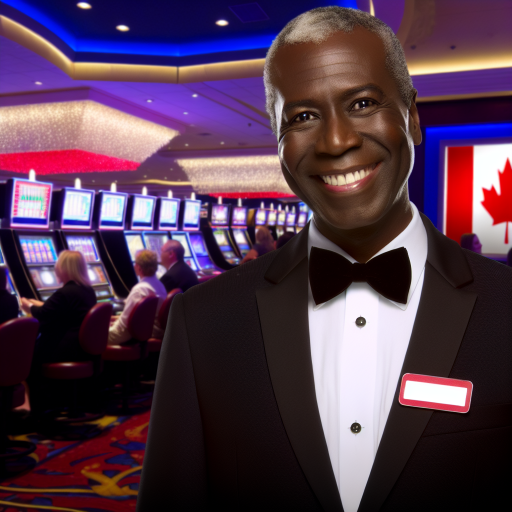Defining Emotional Intelligence and Its Components
Understanding Emotional Intelligence
Emotional intelligence refers to the ability to recognize emotions in oneself and others.
Moreover, it encompasses the capacity to manage these emotions effectively.
Individuals with high emotional intelligence navigate social complexities with ease.
This skill set contributes significantly to personal and professional success.
Key Components of Emotional Intelligence
Self-Awareness
Self-awareness involves recognizing and understanding one’s own emotions.
This skill allows individuals to assess their feelings accurately.
Consequently, self-aware individuals can better manage their emotional responses.
Self-Regulation
Self-regulation refers to controlling one’s emotional impulses and reactions.
Individuals who exercise self-regulation think before they act.
This leads to more thoughtful and balanced decision-making.
Motivation
Motivation is the drive that propels individuals toward their goals.
Emotionally intelligent people often possess a strong intrinsic motivation.
They strive for excellence and are more resilient in the face of challenges.
Empathy
Empathy involves understanding and sharing the feelings of others.
It allows individuals to cultivate deeper connections and build trust.
Empathetic casino hosts can respond to players’ needs authentically.
Social Skills
Social skills encompass the ability to interact well with others.
These skills are crucial for building and maintaining relationships.
Effective communication plays a vital role in addressing concerns promptly.
The Role of Emotional Intelligence in Customer Service
Understanding Emotional Intelligence
Emotional intelligence encompasses self-awareness and empathy.
It enables individuals to recognize and understand emotions.
This understanding is essential for effective communication.
Moreover, it enhances interpersonal relationships within the workplace.
Building Strong Relationships with Customers
Casino hosts rely heavily on their ability to connect with guests.
Additionally, they must identify and respond to emotional cues.
Unlock Your Career Potential
Visualize a clear path to success with our tailored Career Consulting service. Personalized insights in just 1-3 days.
Get StartedBuilding rapport fosters trust and loyalty among customers.
Furthermore, it encourages repeat visits and positive word-of-mouth.
Enhancing Customer Experience
Emotional intelligence significantly improves customer service quality.
Hosts who empathize can resolve issues more effectively.
This approach leads to higher satisfaction levels among guests.
Consequently, positive experiences drive business success.
Recognizing and Managing Emotions
Casinos often have high-pressure environments.
Hosts must stay calm amidst chaos and distractions.
Recognizing their own emotions helps them manage stressful situations.
This ability promotes a positive atmosphere for both hosts and guests.
Training in Emotional Intelligence
Cultivating emotional intelligence requires intentional training.
Workshops can help casino hosts develop these essential skills.
Role-playing scenarios enhance practical understanding.
Encouraging self-reflection aids in recognizing personal growth.
The Impact on Business Success
Emotional intelligence is a cornerstone of effective customer service.
It contributes to improved guest experiences and satisfaction.
Ultimately, this leads to enhanced business performance.
Investing in emotional intelligence training is a wise choice.
Understanding the Emotional Needs of Casino Guests
The Importance of Emotional Connection
Creating an emotional connection enhances guest experiences in casinos.
Guests who feel valued are more likely to return.
Emotionally intelligent hosts can identify and meet guests’ emotional needs.
Recognizing Diverse Guest Profiles
C casinos attract a variety of guests with unique backgrounds.
Understanding these differences helps hosts tailor their interactions.
For instance, high rollers expect exclusivity, while casual players seek enjoyment.
Meeting Expectation Levels
Expectations vary widely among casino guests.
Some guests desire friendly banter, while others value professionalism.
Hosts must adapt their approach based on observed cues.
Creating a Welcoming Atmosphere
Many guests appreciate a friendly and obliging environment.
Hosts can create warmth by greeting guests personally.
A simple smile can significantly enhance a guest’s mood.
Handling Guest Emotions Effectively
Guests experience a range of emotions when visiting casinos.
Positive emotions usually stem from winning or having fun.
Navigating negative emotions, like frustration from losses, is crucial.
Listening to concerns and providing reassurance can ease tense situations.
Building Trust and Loyalty
Trust often leads to guest loyalty in hospitality settings.
Emotional intelligence fosters this trust between hosts and guests.
Understanding guests’ feelings builds rapport and increases engagement.
Proactive Engagement Strategies
Engaging guests proactively can enhance their overall experience.
For instance, hosts can anticipate needs before they arise.
Offering personalized recommendations showcases attentiveness.
Enhancing Overall Guest Experiences
Empathetic service improves satisfaction and enhances memories.
Offering special attention during significant events shows care.
Ultimately, emotionally intelligent hosts have a lasting impact on guests’ experiences.
You Might Also Like: Common Misconceptions About the Casino Host Profession
How Emotional Intelligence Enhances Communication Skills
Understanding Emotional Intelligence
Emotional intelligence involves recognizing and managing emotions effectively.
It significantly impacts how individuals interact with others.
Casino hosts must develop this skill to enhance guest experiences.
Building Rapport with Guests
Establishing rapport is crucial in the casino environment.
Emotionally intelligent hosts can connect with guests on a personal level.
This connection encourages loyalty and repeat visits.
Active Listening Techniques
Active listening fosters stronger communication.
Hosts should focus fully on what guests say, without distractions.
This practice promotes understanding and empathy.
Furthermore, it allows hosts to respond appropriately to concerns.
Handling Difficult Situations
Every casino host encounters challenging situations with guests.
Emotional intelligence equips them to handle conflicts gracefully.
For instance, addressing complaints quickly can defuse tension.
This proactive approach often leads to positive outcomes.
Nonverbal Communication Skills
Nonverbal cues significantly influence communication effectiveness.
Hosts should be aware of body language and facial expressions.
A warm smile can create an inviting atmosphere.
Similarly, maintaining eye contact shows attentiveness and respect.
Empathy and Understanding
Empathy is a cornerstone of effective communication.
Emotionally intelligent hosts can sense guests’ feelings and needs.
This sensitivity helps them provide tailored experiences.
Guests appreciate when their emotions are acknowledged.
Feedback and Improvement
Hosts must actively seek feedback from guests.
This willingness to learn demonstrates emotional maturity.
Constructive criticism helps improve service quality.
Subsequently, it also boosts guests’ satisfaction and loyalty.
Delve into the Subject: How Casino Hosts Contribute to a Casino’s Success
Building Rapport and Trust with Casino Patrons
Understanding Patrons’ Needs
Every casino patron has unique preferences and expectations.
Effective hosts take time to recognize these individual needs.
This understanding builds a foundation for a strong relationship.
Additionally, listening actively enhances this connection.
By showing genuine interest, hosts create a welcoming atmosphere.
Developing Personal Connections
Personal connections increase trust between hosts and patrons.
Hosts should remember names and past interactions.
Incorporating personal anecdotes can strengthen the bond.
Furthermore, sharing stories can make patrons feel valued.
These interactions foster a sense of belonging within the casino.
Creating a Positive Environment
A positive environment attracts repeat visitors to the casino.
Hosts can create this atmosphere through friendly gestures.
Simple things like a smile or a warm greeting matter greatly.
Moreover, recognizing patrons during events can elevate their experience.
This approach cultivates loyalty and encourages patron engagement.
Enhancing Communication Skills
Effective communication plays a crucial role in establishing rapport.
Hosts need to be clear and approachable at all times.
This clarity allows patrons to express their wants freely.
Regularly asking for feedback shows hosts value patron opinions.
Ultimately, good communication builds confidence in the host’s abilities.
Utilizing Emotional Intelligence
Emotional intelligence is essential for casino hosts.
This skill helps hosts read patrons’ emotions accurately.
Understanding emotional cues can improve service delivery.
For instance, recognizing when a patron feels frustrated is critical.
Addressing such feelings promptly demonstrates care and dedication.
Find Out More: Skills Every Casino Host Needs to Excel in the Role

The Impact of Emotional Intelligence on Problem Solving in High-Stress Situations
Understanding Emotional Intelligence
Emotional intelligence plays a crucial role in high-pressure environments.
It enables individuals to manage their emotions effectively.
Moreover, it helps them understand others’ feelings.
This understanding fosters better communication.
Importance for Casino Hosts
Casino hosts often face high-stress situations daily.
They must quickly address guest concerns and complaints.
In this setting, emotional intelligence becomes invaluable.
Hosts with high emotional intelligence handle crises more effectively.
Responding to Guest Needs
Understanding emotional cues leads to quick solutions.
Engaging with guests on an emotional level builds trust.
Hosts can turn negative experiences into positive ones rapidly.
Effective communication is essential for resolving conflicts.
Managing Team Dynamics
Emotional intelligence also impacts team interactions.
Hosts must collaborate with colleagues under pressure.
They need to motivate their team during busy hours.
By recognizing team members’ emotions, they can enhance collaboration.
Improving Customer Experience
A high level of emotional intelligence elevates customer service.
Hosts who empathize with guests create memorable experiences.
They anticipate guest needs and exceed expectations consistently.
This commitment leads to return visits and positive reviews.
Practical Strategies for Development
Developing emotional intelligence is essential for casino hosts.
Regular training and workshops can enhance these skills.
Self-reflection helps individuals recognize their emotional triggers.
Additionally, practicing active listening improves understanding.
Discover More: How Casino Hosts Attract and Retain VIP Gamblers
Training and Developing Emotional Intelligence in Casino Hosts
The Importance of Emotional Intelligence
Emotional intelligence significantly enhances the effectiveness of casino hosts.
It helps hosts connect with guests on a deeper level.
This capability builds trust and rapport, crucial in the casino environment.
By understanding emotions, hosts can create memorable experiences for guests.
Key Components of Emotional Intelligence
There are five primary components of emotional intelligence.
- Self-awareness allows hosts to recognize their own emotions.
- Self-regulation helps them manage their emotional responses effectively.
- Motivation drives hosts to provide exceptional service.
- Empathy enables a deeper understanding of guests’ needs.
- Social skills facilitate strong interpersonal relationships.
Strategies for Training Casino Hosts
Training programs should incorporate various strategies to develop emotional intelligence.
Interactive workshops promote engagement and hands-on learning.
Role-playing scenarios can simulate real-life interactions with guests.
Additionally, providing feedback is essential for growth.
Coaching and mentoring relationships offer personalized development opportunities.
Assessing Emotional Intelligence Development
Regular assessments help evaluate the progress of emotional intelligence training.
Using self-assessment tools allows hosts to identify their strengths and weaknesses.
Peer evaluations provide additional insights into social skills and empathy.
Furthermore, guest feedback can highlight areas for improvement.
Creating a Supportive Learning Environment
A supportive environment encourages hosts to practice and refine their skills.
Management should promote open communication and emotional safety.
This structure allows hosts to express themselves without fear of judgment.
Moreover, fostering a culture of continuous learning enhances emotional intelligence development.
Case Studies: Successful Casino Hosts and Their Emotional Intelligence Skills
The Role of Sarah in Guest Relations
Sarah has worked as a casino host for over five years.
She specializes in building lasting relationships with guests.
Her approach centers around empathy and active listening.
Sarah quickly identifies the emotional needs of her patrons.
She often remembers their names and preferences, which enhances their experience.
Notable Strategies Employed by Sarah
Sarah employs several strategies to ensure guest satisfaction.
- She greets guests warmly, making them feel valued.
- She takes time to ask about their well-being and experiences.
- She proactively offers personalized recommendations.
These actions reflect her strong emotional intelligence.
Consequently, guests often express their appreciation for her care.
The Impact on Customer Loyalty
Sarah’s ability to connect deeply influences customer loyalty.
Her guests frequently return due to her efforts.
Moreover, they often refer friends and family to her.
This organic growth is a testament to her talent.
The Experience of Mark in VIP Hosting
Mark has developed a reputation as a premier VIP host.
His focus lies in understanding the unique needs of high-stakes players.
He attends to the psychological demands of his clientele.
Mark’s ability to read social cues enhances his interactions.
Emotional Intelligence in Mark’s Approach
Mark utilizes emotional intelligence through careful observation.
- He notes clients’ stress levels and addresses concerns promptly.
- He celebrates their wins, fostering a positive atmosphere.
- He provides support during losses, demonstrating genuine care.
Such actions build trust and rapport among guests.
Results and Long-Term Relationships
Mark’s emotional skills have remarkable effects on relationship building.
He maintains long-term connections with VIP guests.
Ultimately, his guests remain loyal and often express their gratitude.
This loyalty translates into increased revenue for the casino.
Additional Resources
Exploring the Impacts of Study Abroad on Hospitality Student’s …




